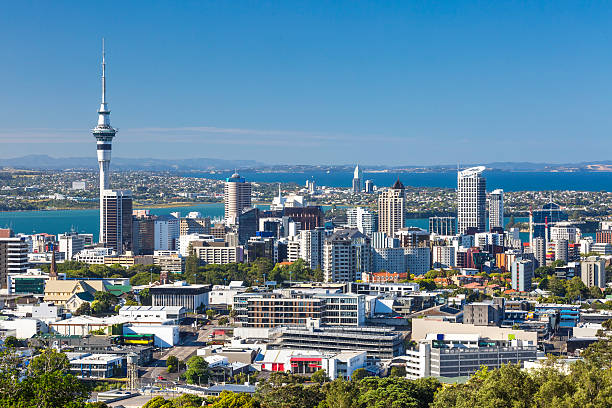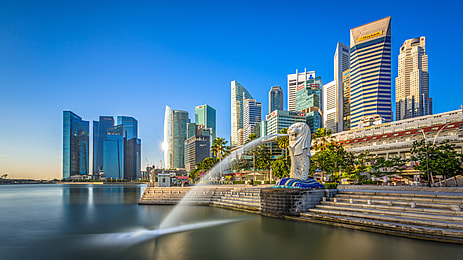Zimbabwe Travel Guide: All you need to know to visit Zimbabwe in 2025
Welcome to Zimbabwe
Country Information of Zimbabwe
Zimbabwe is one of the landlocked countries located in southern Africa. It gained independence from British colonial rule in 1980 and was known as Rhodesia until 1982. Zimbabwe’s diverse population is known for its rich history, cultural heritage, and natural beauty.
Geography:
Zimbabwe covers an area of approximately 390,757 square kilometers, making it the 60th largest country in the world by land area. Zimbabwe is bordered by four countries – South Africa to the south, Mozambique to the east and northeast, Botswana to the west and southwest, and Zambia to the northwest. It is known for its varied landscape, including plateaus, mountains, and rivers. The famous Victoria Falls, one of the largest waterfalls in the world, is located on the Zambezi River in northern Zimbabwe. The highest peak in Zimbabwe is Mount Nyangani (Inyangani), situated in Nyanga national park in the Eastern highlands of Zimbabwe at 260 kilometers.
Climate:
The climate in Zimbabwe is primarily tropical, with a rainy season from November to March and a dry season from April to October. The eastern region of Zimbabwe receives more rainfall than the western region, which is drier. The country has a warm climate throughout the year, with average temperatures ranging from 25°C to 30°C. The annual precipitation in the region varies as the Eastern region experiences a yearly rainfall of about 800 to 1400 millimeters. The region’s western part is drier, with an annual rainfall of about 400 to 800 millimeters and low agricultural production.
Population:
Zimbabwe has a population of approximately 14 million people. The majority of the population comprises various ethnic groups, including the Shona, Ndebele, Chewa, Manyika, and Sotho, among others. The official language is English, and most of the population practices Christianity, with traditional African religions also being prevalent. The population in the country is relatively young, with the median age being around 19 years. The country also has a high infant mortality rate with a low life expectancy of approximately 64 years.
Economy
Zimbabwe’s economy is diversified but faces significant challenges. The country has abundant natural resources, including mineral deposits such as platinum, gold, and diamonds, and a thriving agricultural sector that produces tobacco, maize, and cotton. However, the economy has suffered from hyperinflation, political instability, and international sanctions, hampered economic growth and investment. The government has implemented various reforms, including currency and fiscal policy changes, to stabilize the economy and attract investment. Zimbabwe also has a growing tourism industry driven by its wildlife, national parks, and cultural heritage sites. Despite these efforts, poverty and unemployment remain high, and the country faces challenges in achieving sustained economic growth.
Government:
Zimbabwe is a unitary presidential republic with a semi-presidential system of government. The President is both the head of state and head of government and is elected by popular vote for a five-year term. The Parliament of Zimbabwe consists of two houses: the Senate and the National Assembly. The Senate has 80 members, with 60 elected through a proportional representation system and 20 appointed by the President. The National Assembly has 270 members, with 210 directly elected by the people and 60 women elected through a proportional representation system. The judiciary is independent, and the highest court is the Constitutional Court. Zimbabwe has a multi-party system, but the ruling party since independence in 1980 has been the Zimbabwe African National Union-Patriotic Front (ZANU-PF).
Languages
Zimbabwe is a linguistically diverse country, with 16 official languages recognized in the constitution. The most widely spoken languages are Shona, spoken by over 70% of the population, and Ndebele, spoken by around 20%. Other indigenous languages spoken include Tonga, Shangani, and Venda. English is widely spoken in Zimbabwe and is the official language of government, education, and business. Many Zimbabweans are bilingual or multilingual, and language use varies depending on regional and social contexts. Despite the diversity of languages, there are efforts to promote multilingualism and preserve indigenous languages through education and cultural programs.
Religion:
Zimbabwe is a predominantly Christian country, with an estimated 85% of the population being Christian. The largest Christian denominations are Protestantism, Roman Catholicism, and Anglicanism. However, traditional African religions are also widely practiced, especially in rural areas. These religions involve the worship of ancestral spirits and belief in supernatural powers. Islam, Judaism, and Hinduism are also present in Zimbabwe, but in much smaller numbers. The constitution of Zimbabwe guarantees freedom of religion, and the government respects this right. Languages:
The official language of Zimbabwe is English, which is used in government, education, and business. However, numerous indigenous languages are spoken in the country, including Shona, Sindebele (also known as Ndebele), Chewa, Chibarwe, Kalanga, Koisan, Nambya, Ndau, Shangani, Sotho, Tonga, Tswana, Venda, and Xhosa, among others.
Culture:
Zimbabwe is a culturally diverse country with 16 official languages and a rich history and tradition. The Shona and Ndebele are the largest ethnic groups, and their art, music, and dance are integral to the country’s cultural heritage. Zimbabwean art is known for its intricate stone sculptures, which depict a range of themes, including spirituality, social issues, and wildlife. Traditional music is also essential to Zimbabwean culture, with the mbira (thumb piano) being popular. The country is also famous for its colorful festivals and ceremonies, such as the Harare International Festival of the Arts, the Zimbabwe International Film Festival, and the traditional Shona festival of Jikinya.
Recent History:
Zimbabwe has faced significant challenges recently, including economic struggles, political instability, and social issues. The country has experienced periods of hyperinflation and currency devaluation, leading to financial difficulties for its citizens. Political tensions and human rights concerns have also existed, including freedom of expression and political participation. However, efforts have been made to address these challenges, and Zimbabwe strives for stability and progress.
Related Articles

5 min read
New Zealand Introduces Key Changes to Post Study Work Visa : What You Should Know
According to the government, this change will provide students with greater flexibility in their academic choices while ensuring they remain eligible to work. For many students, studying abroad is a
Read More
5 min read
The Singapore visa processing time for Indian citizens
Singapore is a small island located in the Malay Peninsula in Southeast Asia. It is one of the most economically developed countries in the world. Singapore is a fantastic place
Read More
5 min read
How Much Does an Australia Trip Cost from India?
If you are planning a trip from India to Australia, you must follow some of the points. that are : Planning Budget Traveling date and time To which place you
Read MoreBefore entering the territory of Zimbabwe, individuals of Indian nationality need a visa. Visas are available in the Zimbabwe Embassy or the consulate located in India.
Here are the steps involved in online visa application in Zimbabwe.
Choose the Zimbabwe visa category you need
Pay online
Please send us your documents using our pick-up and drop-off service
The earliest time possible to apply for the Zimbabwe visa online Is 12 months before traveling.
Visa validity in Zimbabwe for Indians goes up to 90 days unless extended.
It is advisable to visit the Zimbabwean Department of Immigration or Immigration office in person well before the expiration of the current visa and submit a formal request for an extension under the conditions provided.
Indian passport holders are advised to apply for a visa in advance through the Zimbabwean Embassy or consulate in their country of residence through an authorized visa application center. Visa application typically entails submitting the required documents plus the visa fee.
